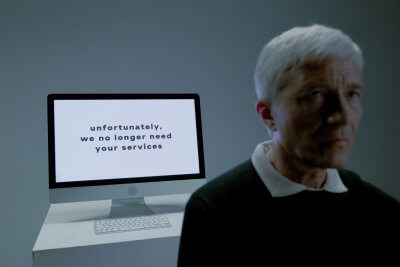Feeling Useless – Why it Happens and How to Feel You Matter

photo by Lilartsy for Pexels
by Andrea M. Darcy
Feeling useless can feel even worse than feeling hopeless. Hopelessness means things feel beyond our control, but uselessness has us pointing the finger directly at ourselves.
We deem ourselves as not good enough to have any effect at all… and it’s a dangerous game for our psychological and emotional wellbeing.
Why do I feel so useless?
Early research looked at our lifestyles to understand feelings of uselessness. It connected several variables, including education, income, health, and family situation. The conclusion was that we are most likely to feel useless when we are a young adult without a job, or in our senior years and feeling lonely.
Modern research, on the other hand, shows that now loneliness might be the key factor for all of us. A recent study on female university students, for example, directly connected a greater sense of loneliness to feeling we don’t matter to the world and to others.
The study called this combination, of loneliness and feeling like we don’t matter, as the ‘double jeopardy’ for mental health.
The ‘mattering construct’
That earlier research taking into account what we do with our lives, which at first glance seems basic, actually had a grain of what was to become the most recent understanding of why we feel we don’t matter.
It turns out that mattering is a two-way street. While first it was thought that the ‘mattering construct’ was formed of the the need to be important to other people”, new research suggests it’s not enough to only feel others value us, we need to see that we are doing things of benefit to others.
Award-winning community psychologist Isaac Prilleltensky sums up the new view of mattering nicely when he says , “to make sure that the need for mattering is fulfilled, we must balance feeling valued with adding value. Moreover, we must balance adding value to self with adding value to others.”
Mattering, self-esteem, and your mood

photo by Ron Lach for Pexels
But isn’t mattering and feeling useful the same as having self-esteem? They are related, but research shows there is a nuanced difference. Again, mattering isn’t just about feeling good about ourselves, but feeling we are contributing to the lives of those around us.
And feeling you matter might be even more important than having high esteem. A study looking at mattering vs self-esteem in university students found that feeling you don’t matter was more likely to cause serious depression, particularly if it was supported by negative social feedback.
ADHD and feeling useless
Do you live with a constant sense that you can’t live up to your potential, no matter how hard you try? And it’s not just about loneliness or not contributing, but a certainty you are really should be more useful? That leaves you endlessly frustrated?
It’s worth learning about attention deficit hyperactivity disorder (ADHD). It means your brain can’t stay on track well to finish things, no matter how high IQ you might be. In this case certain types of therapy like CBT therapy, a coach specialising in ADHD, and sometimes ADHD medication can make a difference.
How can we feel like we matter?
Research might show that we need to find a way to feel valuable to ourselves and others, but easier said than done. The problem with feeling useless is that it comes hand in hand with low moods, meaning our motivation, energy levels, and clarity of thinking can be far too low for us to take action. So we might need to deal with our moods and our need to matter at the same time.
1. Challenge your thinking.

photo by Pixabay for Pexels
The first step can be challenging the thinking that tells us we are useless in the first place. Humanistic therapies would suggest looking to the past and finding evidence that contradicts your negative thinking. Journaling can be helpful here.
- What have other people thanked you for doing in the last few months? It doesn’t have to be big, it can be as small as helping someone with a simple task.
- List the skills you have that you’ve used to help others with in the past: organising, listening, making phone calls, showing empathy, making people laugh, cooking… they all matter.
2. Practice negative comparison.
We can be so busy comparing ourselves to people who have seemingly perfect lives we lose any sense of reality. Not helped by the fact that research shows that upward comparison (comparing ourselves to people who seem to be ahead of us) is guaranteed to make us feel bad.
But research also shows that downward comparison can have the opposite effect. It’s not about being mean, it’s just a private moment to see that in some ways you are doing better than you think. Who do you know, personally or otherwise, who doesn’t make any effort to be useful to anyone? Are you really the most useless person in the world still?
3. Connect with a stranger.
If we are feeling useless and lonely and try to connect with someone we know it can backfire. We have expectations they will understand us as they know us. If they fail to meet our expectations, we can be left feeling worse.
That’s why sometimes it can be a better idea to just get out the door and be around strangers. Talk to a shopkeeper, smile at a stranger on the bus, notice what we have in common with the people passing us by, even if it’s just a similar sense of fashion.
If you are too depressed to get out, then try a mindfulness meditation, where you think of all the other people around the world also feeling alone and like they don’t matter. We are never alone with our human suffering, we share it, and it can feel oddly comforting to realise.
4. Stop looking at big goals as the answer.
Having big goals can be exciting and keep us pushing ourselves forward.
But even if we reach them, we generally find that the excitement and sense of achievement doesn’t last long. A read of any biography of a hugely successful person will quickly illustrate this. You might find that many of them still suffer with feelings of not being useful enough, or even from impostor syndrome.
The wisdom here is that it’s not actually about the end goal but the journey there. Again, feeling useful comes from feeling we are adding value, and that can be something we do daily, not just when we reach a big win.
5. Take small consistent actions instead.
Once you create some breathing space for yourself with the previous point, consider how you can make helpful actions a smaller, more consistent part of your life.
Start with a brainstorm list of all things, no matter how tiny, you can do to be useful in a way that affects others and leaves you feeling good. And it can be something to help animals or the environment if you are more that way inclined. It could be as simple as writing some positive supportive comments on people’s social media accounts, or picking up litter from the local beach.
What small action from your list can you put into effect today? Could you schedule one small action into your diary now for each day of this week?
What sort of therapy helps with feeling useless?
Most will, to an extent, as they all focus on helping you to get to know yourself and your own inner resources.
Existential therapy, for example, focuses on helping you create a life you feel good being in and that gives you a sense of meaning.
Solution focused brief therapy (SFBT) helps you recognise the resources and skills you already have and have used in the past.
Cognitive behavioural therapy (CBT) focuses on helping you challenge your negative thinking, changing it to more balanced and helpful thoughts.
Need unbiased help to recognise your own inner resources and create a life of value? We connect you with a top team of London therapists. Or use our sister site to find UK-wide therapists based on other client reviews.
 Andrea M. Darcy is the lead writer of this site. With training in person-centred therapy and coaching, she is a popular online mental health writer for many years. Find her also on Instagram @am_darcy
Andrea M. Darcy is the lead writer of this site. With training in person-centred therapy and coaching, she is a popular online mental health writer for many years. Find her also on Instagram @am_darcy





This blog was very helpful
I feel useless. Dont have a job a car a house a boyfriend and I want all these things. Its been my long term goal. When I don’t reach them I feel empty and useless and still haven’t reached three goals. I’ve had depression ctpsd and parentified child as well. Been speaking to a therapist and she said use positive affirmations. what do you suggest?